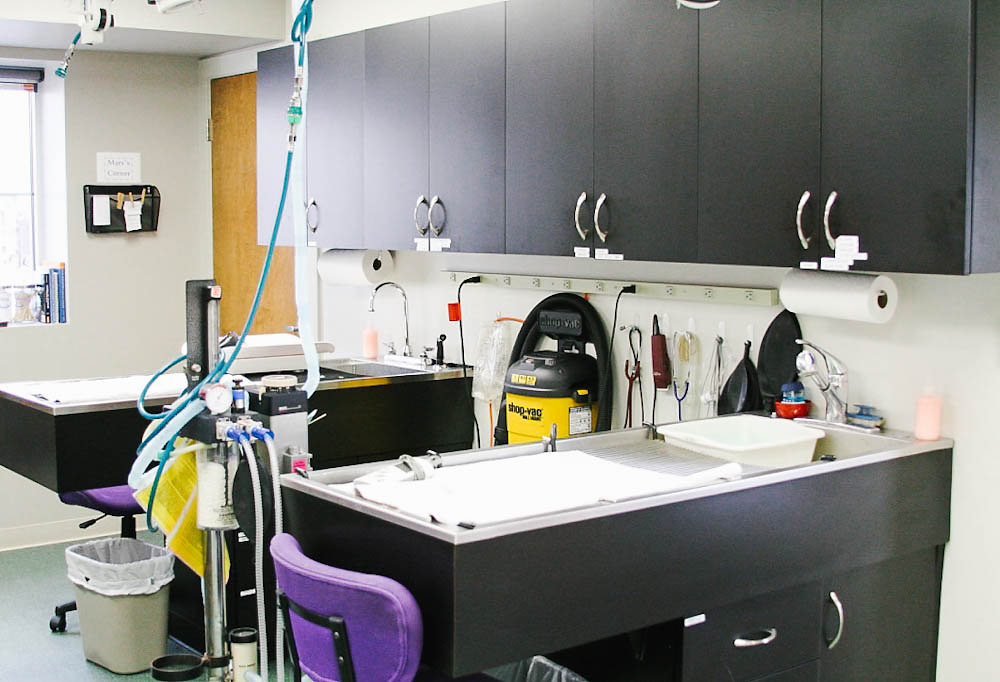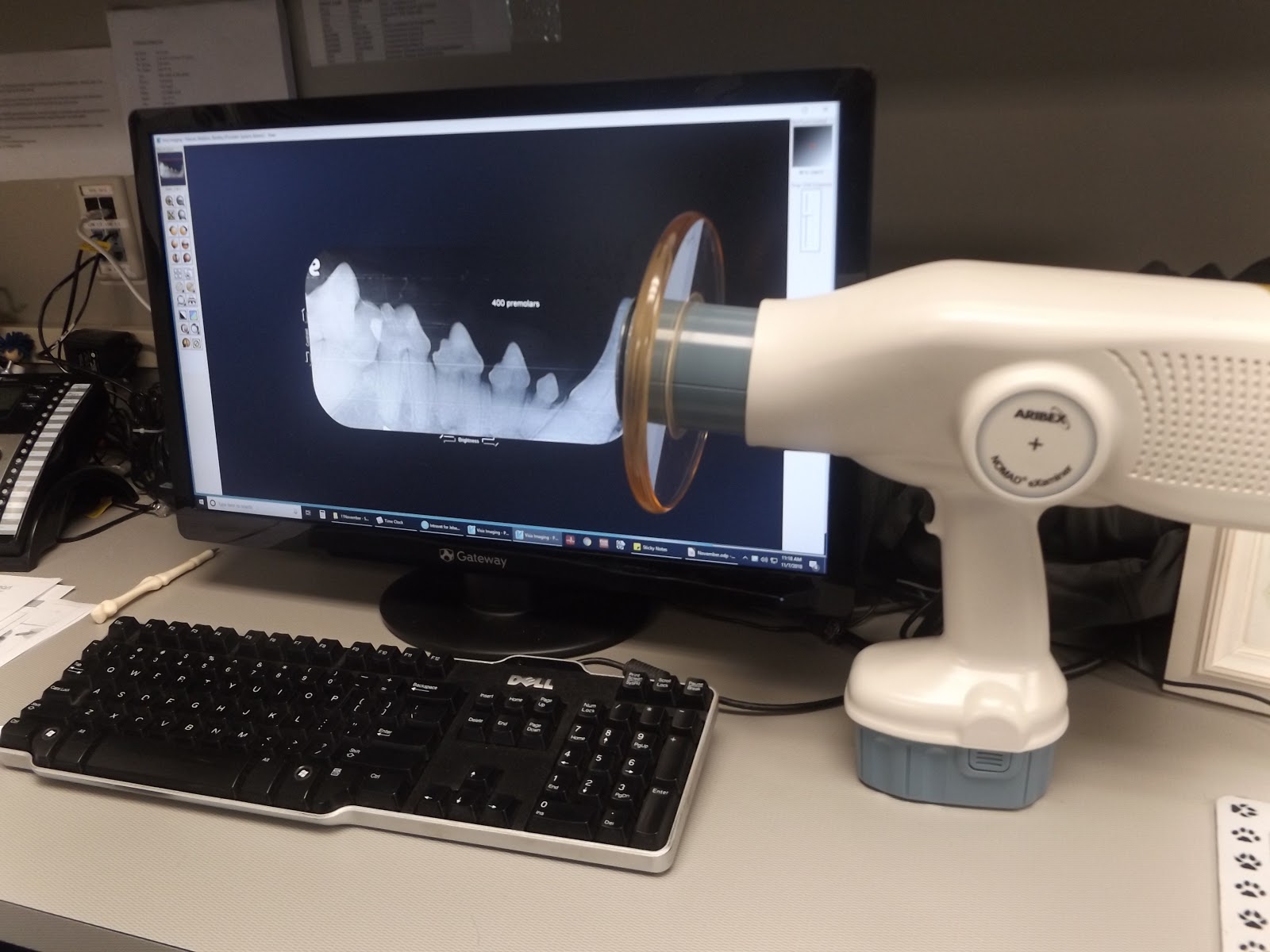Dentistry
Good oral health is the gateway to keeping your pet healthy. Poor oral hygiene can lead to all different kinds of problems like heart disease, kidney disease and infection.
Good oral health is the gateway to keeping your pet healthy. Poor oral hygiene can lead to all different kinds of problems like heart disease, kidney disease and infection.

Beginning at puppy and kitten wellness exams, veterinarians monitor deciduous (baby) teeth, missing teeth, extra teeth, swelling, and oral development. As they age, your veterinarian will look for developmental anomalies, accumulation of plaque and tartar, periodontal disease, and oral tumors. The veterinarian can perform a basic oral examination while pets are awake. However, anesthesia is required for a more complete examination.

Dental cleanings are performed under general anesthesia, While your pet is under anesthesia, its vital signs (such as body temperature, heart rate, and respiration) are monitored. Pre-anesthetic blood work, and IV fluids are included in all dental procedures which helps ensure your pet’s safety while under anesthesia.
Image to the left: before dental cleaning

Even a well-hydrated pet will benefit from IV fluids while anesthetized for surgery or a dental cleaning and his blood pressure can change rapidly during anesthesia. Adding more fluid to a pet’s body is one of the many ways veterinary teams can correct low blood pressure and ensure the best possible outcome.
* Image to the left: after dental cleaning

Many animals can seem healthy, but have an undetected health issue which could cause problems during surgery. Pre-anesthetic blood testing is important before anesthesia to make sure that the liver and kidneys can handle the anesthetic. Knowing about these problems ahead of time gives the doctor the opportunity to customize the surgery or anesthesia protocol for that particular patient, or to postpone surgery until the underlying issue is addressed.

Using instruments much like human dentists, veterinarians remove plaque and calculus from your pet’s teeth. Polishing with a special paste smooths out scratches to the tooth enamel which helps prevent plaque and tartar. A Fluoride treatment is then applied to the freshly polished teeth.

X-rays of your pet’s teeth are needed periodically to evaluate your pet’s oral health. X-rays also help veterinarians detect abnormalities that cannot be seen through physical examination alone. They can also confirm the need for tooth extraction when teeth are loose or badly infected.